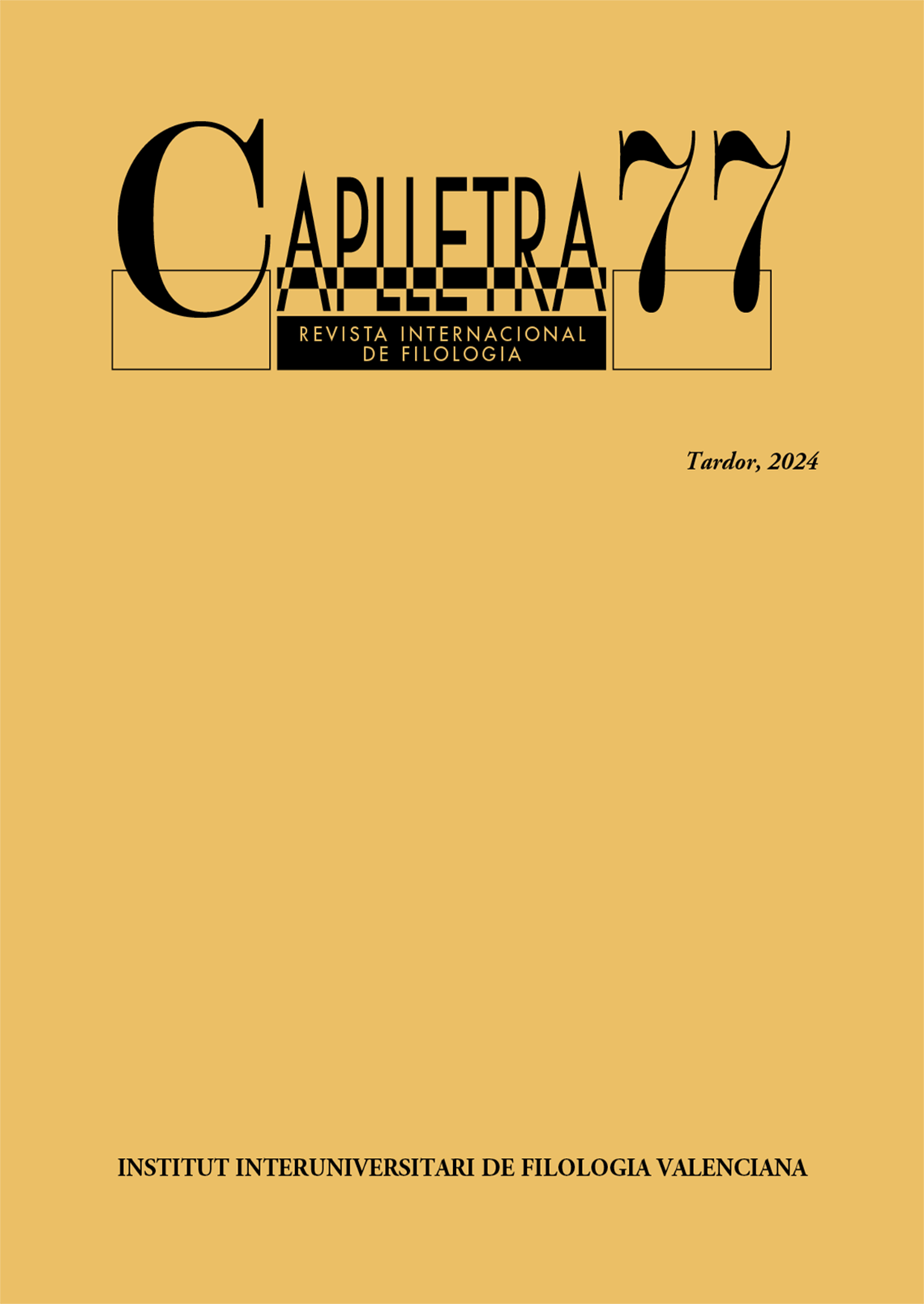Meanings and case marking of the Catalan verb «molestar»
DOI:
https://doi.org/10.7203/caplletra.77.28955Keywords:
verbal alternation, Catalan, to annoy, experiencer object, case marking, lexical meaning, experiencer subject Abstract
Abstract
Sentences containing the Catalan verb molestar ‘to annoy’ show different meanings and syntactic patterns, a manifestation of the extraordinary semantic and syntactic flexibility of this predicate. In this study, we first analyse non-stative transitive sentences and stative sentences with this verb, with an accusative and a dative experiencer, respectively. In these sentences, it is necessary to add lexical or idiosyncratic information to the definition of the verb to distinguish different meanings and submeanings of the verb or to show that two different syntactic structures form a verbal alternation, with no change in the lexical meaning of the verb. Although the verb molestar resists forming alternations, it can participate in the causative alternation between its transitive causative meaning molestar ‘to make angry, to offend’, and the corresponding pronominal ergative that alternates with it, molestar-se ‘to get angry, to get offended’. The pronominal verb that governs a prepositional phrase, molestar-se a ‘take the trouble to, make the effort to’, differs from the pronominal ergative because it displays agentive characteristics.
 Downloads
Downloads
Downloads
Published
How to Cite
-
Abstract89
-
PDF (Català)30
Issue
Section
License
Copyright (c) 2024 Caplletra. Revista Internacional de Filologia

This work is licensed under a Creative Commons Attribution-NonCommercial-NoDerivatives 4.0 International License.
Authors submitting work to Caplletra for publication must be the legitimate holder of the usage rights. Legitimacy for the purposes of publishing the work must also include images, tables, diagrams and any other materials that may complement the text, whether they are the author of such material or not.
Copyright: on publishing their work in the journal, the author grants Caplletra. Revista Internacional de Filologia usage rights (reproduction, distribution and public communication) for both the paper printed version and for the electronic version.
All work published in Caplletra is covered by the Creative Commons license type Attribution-NonCommercial-NoDerivatives 4.0 (CC BY-NC-ND 4.0).
RESPONSABILITY
Caplletra. Revista Internacional de Filologia does not necessarily identify with the points of view expressed in the papers it publishes.
Caplletra. Revista Internacional de Filologia accepts no responsibility whatsoever for any eventual infringement of intellectual property rights on the part of authors.






